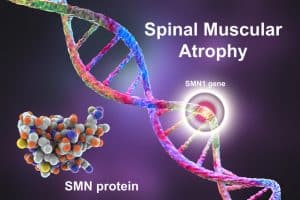
Prophylactic antibiotic use could halve post-birth maternal infections, study indicates
pharmafile | May 14, 2019 | News story | Manufacturing and Production, Research and Development | Antibiotics, University of Oxford, pharma
A study led by researchers at the University of Oxford has argued that the administration of preventative antibiotics to all mothers following childbirth could cut maternal infections by almost half.
The researchers’ hypothesis relates to births which involve the use of forceps or vacuum extraction, and could prevent around 7,000 maternal infections annually in the UK and 5,000 in the US.
These assertions were derived from a UK study involving 3,420 female participants giving birth in 27 obstetric units between March 2016 and June 2018. Around two-thirds of deliveries utilised forceps, with almost a third delivered by vacuum extraction. It the first randomised trial of its kind, building on the previously limited data that exists from a small previous study into the use of prophylactic antibiotics in assisted vaginal birth.
Infections occur in around 16% of assisted vaginal births without antibiotic prophylaxis around the world, and this rises to around 25% for caesarean sections, resulting in the deaths of an estimated 19,500 women in 2016 alone.
The findings of the trial indicated that the women who received a single dose of antibiotics “had significantly fewer suspected or confirmed infections” than those given placebo, and were “much less likely to have confirmed culture-proven sepsis”.
Based on the data, the researchers argue that for every additional 100 doses of antibiotic given as a preventative measure, 168 doses could be avoided due to fewer postdelivery infections. Because of this, they argue that universal prophylaxis given after birth could reduce antibiotic use by 17%, while “the total average NHS costs 6 weeks after birth were £52.60 less per women in those who received the single dose of antibiotic compared to women given placebo”.
“These findings highlight the urgent need to change current WHO antibiotic guidelines and other guidance from organisations in the UK, North America, and Australasia, that do not recommend routine antibiotic prophylaxis for assisted childbirth,” explained study leader Professor Marian Knight from the University of Oxford. “Pregnancy-associated infection is a major cause of death and serious illness. Almost one in five women develop an infection after assisted vaginal delivery and our results show that this could be reduced by almost half by a single dose of prophylactic antibiotic.
“With increasing recognition of the need to reduce unnecessary caesarean births, the incentive to minimise the harms associated with other types of assisted delivery are even greater,” she added. “This simple intervention could also be used to prevent maternal infections in low- and middle-income countries in which intravenous antibiotics are available.”
Matt Fellows
Related Content

Oxford North UK innovation district officially opened
Oxford North, a new innovation district in Oxford, UK, with planning permission for around one …

LGC Group opens $100M Organic Chemistry Synthesis Centre of Excellence
LGC Group, a life sciences company, has opened its new Organic Chemistry Synthesis Centre of …

Terumo to acquire Oxford spin-out OrganOx in $1.5b deal
Japanese medical technology company Terumo has announced it will acquire OrganOx, a University of Oxford, …






